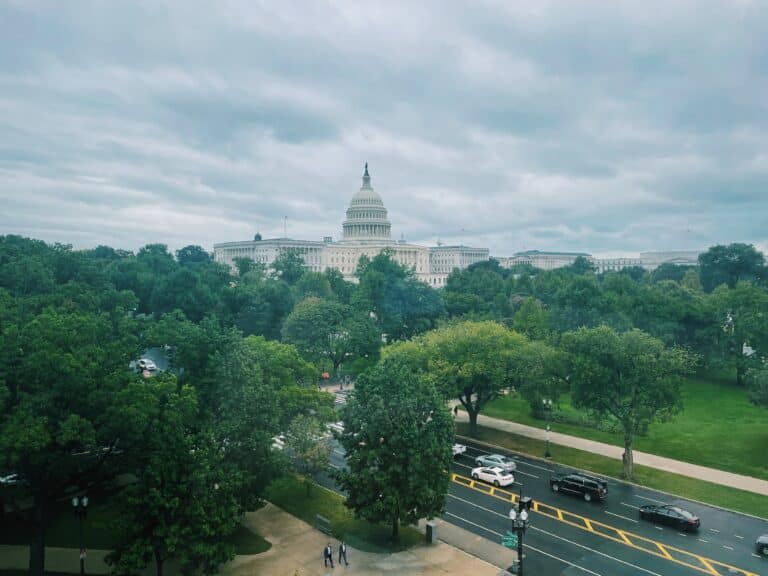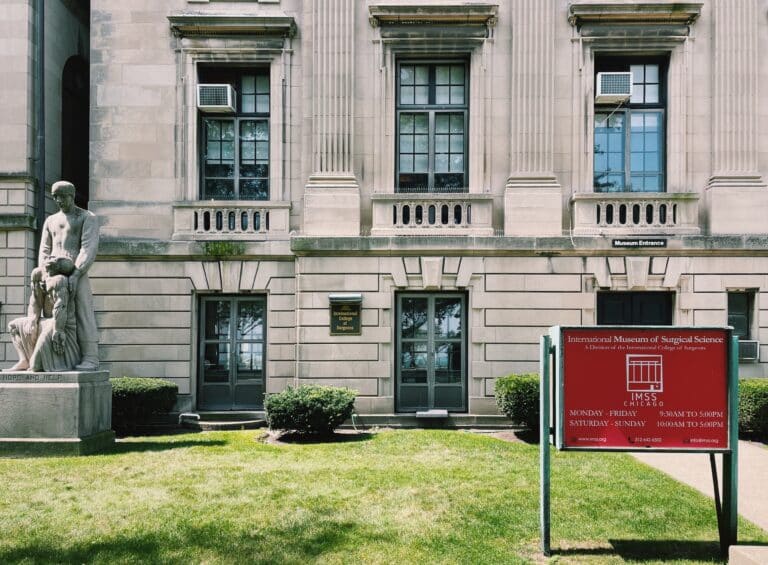Centering mental health and public safety during a contentious voting day
As political violence and division flared in recent months in the U.S., our associate editor, Ronit Rose, prepared for her role as an election judge for this year’s presidential election. Ronit served at a precinct in Chicago’s Lincoln Park neighborhood. While she reiterated that she wasn’t worried, the reality is that she was going to be playing a key part in the electoral process during what experts warned would be a “highly volatile” atmosphere, thanks in part to a mental health crisis and a contentious election season.
In fact, Police Chief Magazine made the theme of its September 2024 issue “Preparing for Contentious Elections,” writing, “An election year often brings a higher propensity for violence, but an increase in political polarization has created a constant environment for extremist attacks. Policing personnel must be prepared to protect democracy by ensuring the safety of public officials and voters.”
Researchers report that the U.S. is currently seeing its highest rise in political violence since the 1970s, with at least 300 cases of political violence since the January 6, 2021 storming of the U.S. Capitol. In recent months alone, people have twice attempted to assassinate Donald Trump, they’ve attacked Kamala Harris attendees at rallies, and the Stop the Steal movement threatened violence on election day out of fear of voter fraud.
I asked Ronit if she would feel comfortable writing about her experience as an election judge through a mental health lens. Here, she writes about the strength she found to stand up during an unsettling confrontation — a small-scale reflection of broader issues at play.
—Katie Scarlett Brandt
* * * *
Ten years ago, I served on the jury of a murder trial. For four days, I traveled to the courthouse and listened, riveted, to a parade of witnesses and lawyers trying to create a narrative around a stranger’s untimely death. The judge, addressing the jury, told us that jury service was the highest calling of American citizens, after military service.
I’ve since come to disagree. Serving as an election judge is at least on par with jury duty — especially in today’s perilous political environment. The roles have similarities: The days are long and sedentary, the chairs are uncomfortable, and you have to pay attention and stay neutral until the end.
The number of details an election judge needs to know is mind-boggling. What do we do if someone insists on voting, even though the computer shows their mail-in ballot has already been received? Does the voting station meet the American with Disabilities Act (ADA) requirements? Is this person’s ID card acceptable to register to vote? What to do about the poll watcher who wandered in and offered refreshments to the judges? The sheer number of potential situations cannot possibly be covered by the 3½-hour training session. There is a lot of pressure, knowing that any mistake you make could derail part of the process.
Chicago has 50 wards, with 1,291 precincts. Each precinct must have a minimum of five judges, so the city needs more than 6,500 judges, who must undergo training and commit to a full day on Election Day. As an election judge, I’ve seen just how much of a logistical challenge Election Day is: It requires packing heavy electronic equipment and supplies into large metal cabinets, transporting them to the appropriate precincts, arranging people to be on call to manage any situation that poll judges cannot handle (from malfunctioning equipment to difficult voters), ensuring ballots get packed in the right cabinets for their precincts (different precincts have different ballots, for local candidates), and addressing the needs and rights of every citizen who passes through.
I have worked elections before, and this year, I looked forward to participating in a landmark one. We had large crowds of voters in the morning and a steady stream all day. And they were a delight. They were enthusiastic, patient, grateful, and kind. They were young and old, and they were excited to vote. They thanked us for helping, apologized when they messed up their ballots, and respected the process.
We still ran into issues. Unexpectedly, though, they came from the election judges, not the voters.
In my experience, most election judges are eager to help and learn; they cooperate, trade off positions, and get along. But this time, some of them frightened me.
Maybe, because tensions were high — fueled by stress of the unknown and the potential for danger — these particular poll workers lost sight of their responsibilities. They hastily assigned tasks and barked out orders. While their instructions were helpful because of their experience, their personalities grated on the group.
At the end of the evening, as we were wrapping up, one self-appointed leader lost patience with another judge, and began to berate him, screaming at him to complete a task that was not actually required to close the polls.
I looked around — everyone seemed cowed by her shrieks. But in her behavior, I saw the very injustice that elections are supposed to combat. I thought about times in history when people stood idly by. I knew I could not live with myself if I stayed silent. So I spoke, hoping that one of my fellow judges would support me.
I asked the judge to speak civilly so that we could work together to complete the job of closing the polls. This suggestion, however, did not bring about the intended result. My colleagues stared in silence, terrified of turning into the next victim. And she turned on me. She screamed at me to leave, and enlisted the help of a representative from the Board of Elections who was sitting on a nearby sofa, seemingly a close friend of hers. He told me to go with a flick of his head.
But something happened: The more she admonished me, and the more the representative flicked his head, the stronger I felt. I had taken an oath as an election judge, and I was going to fulfill it. Also, I’m a journalist. I don’t walk away from a developing story. And lastly, I was legitimately concerned for the judge who was the first object of her wrath. It was clear to me he had a serious health condition, and her actions seemed to be exacerbating it.
When I stood my ground, she stopped screaming. She directed her earlier victim to squat down to take apart some machinery. Hearing his labored breathing, I offered to take over. After a few minutes, he handed me the tool he was using, in a silent acknowledgement of his physical difficulties. I took over, and he later staggered to a bench to sit, wheezing heavily, white as a sheet. With more than a touch of irony, she professed concern for him and offered to call an ambulance.
I left that night fully confident that I had served democracy: I helped my fellow citizens vote. And I stood up to a bully; I am stronger and better equipped for future challenges.
But will I serve again? The jury is still out on that one.
Photo by Katie Scarlett Brandt

Ronit Rose is a freelance writer, based in Chicago. She has a special interest in health, healthcare and preventive medicine.











